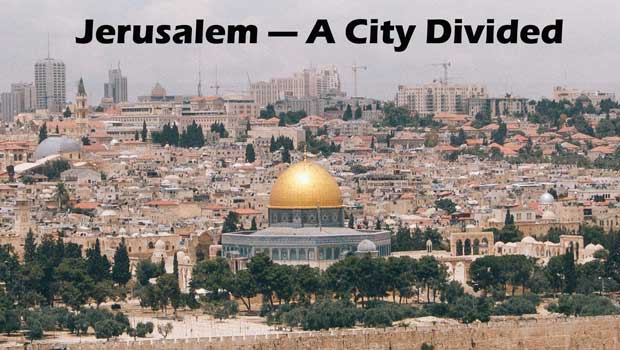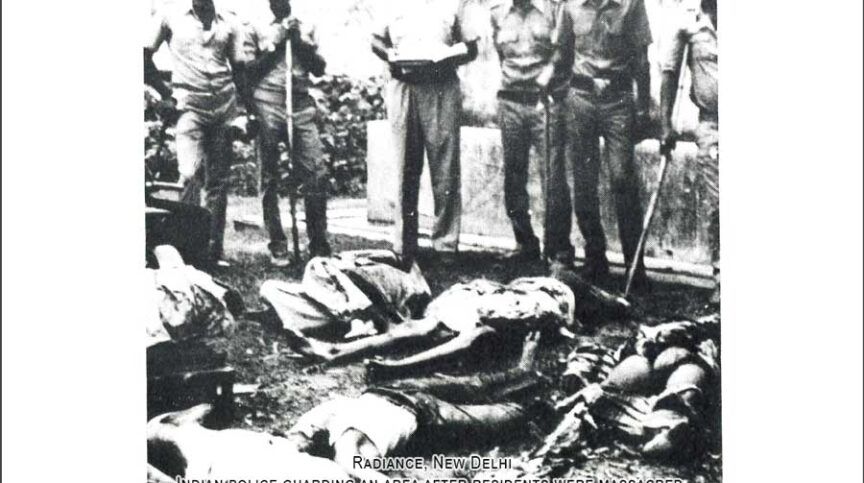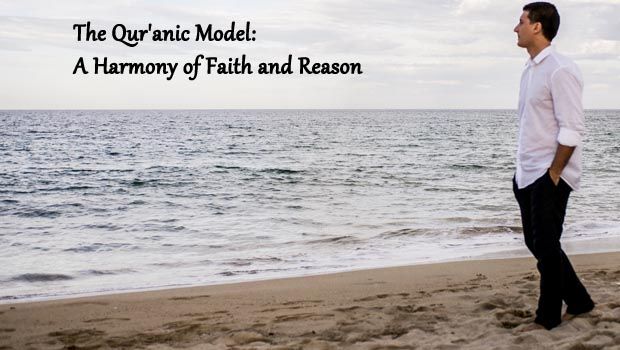On December 6, President Donald Trump announced his decision to move the U.S. embassy from Tel Aviv to Jerusalem, and to recognize the city as the capital of Israel. It appears that he did not take into account international law or the political consensus of the international community. And for all intents and purposes, he has waved aside, as inconsequential, the multitude of U.N. resolutions relating to the status of Jerusalem.
U.N. Resolutions Pertaining to Jerusalem
A number of resolutions passed by the United Nations General Assembly between 1947 and 1983 pertain to Jerusalem or include clauses that pertain to Jerusalem. It’s important to note that the resolutions passed by the General Assembly are observations and/or recommendations only, whereas the resolutions passed by the Security Council are binding upon the member states. The General Assembly resolutions pertaining to Jerusalem called for international status of the city, protection of the Holy Places, and condemned Israel’s annexation of Jerusalem.
In 1967, Security Council Resolution 242 stipulated the following: “(i) Withdrawal of Israel armed forces from territories occupied in the recent conflict; and (ii) Termination of all claims or states of belligerency and respect for and acknowledgment of the sovereignty, territorial integrity and political independence of every State in the area and their right to live in peace within secure and recognized boundaries free from threats or acts of force.” Further resolutions invalidated Israel’s moves to unify Jerusalem as its capital.
Violations of Security Council Resolutions
In an October 2002 article in Haaretz (the longest-running daily newspaper in Israel), Shlomo Shamir notes “Israel holds the record for ignoring United Nations Security Council resolutions, according to a study by San Francisco University political science professor Steven Zunes.” The article goes on to provide stats from the study – “Since 1968, Israel has violated 32 resolutions that included condemnation or criticism of the governments’ policies and actions.”
The article points out that “Zunes specifically avoided counting resolutions that are vague or unclear so that governments could claim different interpretations to the meaning of the resolutions. Thus, the famous UN Security Council resolutions 242 and 338 are not included in his study. He also did not count resolutions that only included condemnations. Instead, he focused on those that included specific calls for changes in the subject governments’ policies.”
Keep in mind that resolutions passed by the Security Council are binding on member nations.
2016 Resolution Reaffirmed that Israel Must Withdraw from Occupied Territories and East Jerusalem
Security Council Resolution 242, passed after the Six Day War in 1967, stipulated among other things, the “Withdrawal of Israel armed forces from territories occupied in the recent conflict.” Nearly 50 years later, the Security Council passed Resolution 2334, in December 2016, condemning Israeli settlements, re-affirming that the establishment of Israeli settlements in the “Palestinian territories occupied since 1967, including East Jerusalem” has “no legal validity and constitutes a flagrant violation under international Law.” The first three provisions of the resolution are as follows:
1. Reaffirms that the establishment by Israel of settlements in the Palestinian territory occupied since 1967, including East Jerusalem [emphasis added], has no legal validity and constitutes a flagrant violation under international law and a major obstacle to the achievement of the two-State solution and a just, lasting and comprehensive peace;
2. Reiterates its demand that Israel immediately and completely cease all settlement activities in the occupied Palestinian territory, including East Jerusalem [emphasis added], and that it fully respect all of its legal obligations in this regard;
3. Underlines that it will not recognize any changes to the 4 June 1967 lines, including with regard to Jerusalem [emphasis added], other than those agreed by the parties through negotiations.
Resolution 2334 was signed by 14 countries, with the U.S. abstaining. In an interview with Philip Weiss of Mondoweiss.org, Norman Finkelstein says, “…the text begins by reaffirming explicitly the principle of ‘the inadmissibility of the acquisition of territory by force.’ That’s an important fact for the following reason. When that statement was put into the preambular paragraph of UN resolution 242 [in November 1967, in the aftermath of the Six Day War], Israel fought bitterly against including that principle, because it recognized that it preempts territorial revision, meaning Israel had to return every inch of territory acquired by force.”
Expanding Settlements — Facts on the Ground
The settlements began after Israel captured the West Bank and East Jerusalem, as well as the Golan Heights, in the ‘67 war. After the war, ever-growing numbers of Jews started settling on land within the occupied territories. More than half a million Jews now live on confiscated land. The condemnation of expanding settlements is recognition of the diminishing possibility of a two-state solution. But many have asserted, and continue to do so, that Israeli leaders never intended to make peace with the Palestinians. The settlements, according to this viewpoint, are “facts on the ground,” as Israel slowly but surely usurps more and more Palestinian land, without apology or remorse.
The consensus of the international community is that, at the very least, the ongoing expansion of settlements on Palestinian land in the West Bank and East Jerusalem impedes any chance for future peace. Successive maps of the territory of Palestine and that of Israel, from 1918 through 2015, show how Israel has usurped, and continues to do so, Palestinian land through settlements and their Jewish regional councils, the “security fence” that cuts deeply into Palestinian territory, military zones, and Area C (roughly 60 percent of the West Bank) jurisdiction prohibiting use of land to Palestinians. According to B’Tselem, the Israeli Information Center for Human Rights in the Occupied Territories, “Israel prohibits Palestinian construction and development in about 40% of the West Bank – about 70% of Area C, which is under full Israeli control.” There is also the demolition of Palestinian homes military purposes and revocation of residency in East Jerusalem.
The Trump Announcement
When President Trump announced on December 6th his intention to move the U.S. embassy from Tel Aviv to Jerusalem and to recognize Jerusalem as the Israeli capital, he stated, in part, the following:
“In 1995, Congress adopted the Jerusalem Embassy Act, urging the federal government to relocate the American embassy to Jerusalem and to recognize that that city — and so importantly — is Israel’s capital. This act passed Congress by an overwhelming bipartisan majority and was reaffirmed by a unanimous vote of the Senate only six months ago. Yet, for over 20 years, every previous American president has exercised the law’s waiver, refusing to move the U.S. embassy to Jerusalem or to recognize Jerusalem as Israel’s capital city. Presidents issued these waivers under the belief that delaying the recognition of Jerusalem would advance the cause of peace. Some say they lacked courage, but they made their best judgments based on facts as they understood them at the time. Nevertheless, the record is in. After more than two decades of waivers, we are no closer to a lasting peace agreement between Israel and the Palestinians. It would be folly to assume that repeating the exact same formula would now produce a different or better result. Therefore, I have determined that it is time to officially recognize Jerusalem as the capital of Israel.”
Miko Peled is the son of General Matetiyahu Peled, Chief of Logistical Command during the Six Day War. Miko Peled has issued a statement in response to Trump’s announcement. That statement is below, but first consider who Miko Peled is. His family is a very prominent Israeli family. Beyond his father being a renowned general, his grandfather was amongst the founders of Israel. How is it that Miko Peled, a Jewish man from a renowned Zionist family, came to the perspective that Israel was built on myth, that it is in no way a democracy, and that it is nothing short of an apartheid society, governed by a radical regime?
In an interview he did in 2012 with Alex Becker of realchangenews.org, Peled shared how he came to understand the reality of the Israeli-Palestinian conflict. He says that after he served in the Israeli military, he travelled widely and then settled in San Diego to raise a family. In 1997 he got the news that his 13-year-old niece, Smadar, had been killed in a suicide bombing in Jerusalem. Peled’s sister, the mother of Smadar, blamed the policies of the Israeli government; she firmly believed that her daughter was “sacrificed for the Israeli government’s megalomania.” Peled says that this family tragedy and his sister’s dissident viewpoint “helped set me on the right path.” He found out about and started attending a Jewish-Palestinian dialogue group in Southern California. He points out in the interview that despite having grown up in Israel in such close proximity to Palestinians and with such egregious conflict raging in his own country throughout his lifetime, he did not meet a Palestinian until he was 39 years old. He says, “You know, there’s this image of Jerusalem, that it’s a united, multicultural city. It is multicultural, but it’s completely segregated. It’s a racist city, and there’s a lot of discrimination. So, if you’re an Israeli boy growing up, you go to school, but you never meet Palestinians. You never see Palestinians. You know, they could be on the moon. If you do see them, they are in marketplaces or working as laborers. So, the first time I really met Palestinians was in San Diego.”
He writes on his blog, http://mikopeled.com, about the “state of affairs that should not be tolerated…one nation ruling over another while controlling of the land and its resources. It is a reality where half of the population lives in what it thinks is a Western democracy while keeping the other half imprisoned by a ruthless defense apparatus that is becoming more violent by the day. In my book, The General’s Son, Journey of an Israeli in Palestine, I show how it is that the son of an Israeli General and a staunch Zionist came to these realizations. Realizing that your side of the story is not the only side to the story, and then accepting rather than fighting this realization and in the end finding that the story upon which I was raised, was a lie – now that is an interesting journey.” (For more of Peled’s story and viewpoints, see YouTube videos, Miko Peled 1 of 5 “The General’s Son.”)
Here is Peled’s response to the Jerusalem announcement by Trump:
“The declaration made by Donald Trump that the United States recognizes Jerusalem as the capital city of Israel was a reckless mistake. We don’t know yet what the repercussions are going to be, but clearly this was an enormous insult to the entire Arab and Muslim world, and a boost for Israel, for Benjamin Netanyahu, and for Israeli settlers. Jerusalem has been a Muslim and Arab city for 1500 years and this was only interrupted in 1948 when the state of Israel was established and then in violation of international law and United Nations resolutions went on to conquer the city of Jerusalem. At that point Israel had taken the Western part of the city and then it began a massive campaign of ethnic cleansing in which the entire population of Western Jerusalem was forced to leave, their homes were taken. In fact, in my book, The General’s Son, I describe how my mother was offered an Arab home in one of these neighborhoods and of course she refused to take the home of another family. But the entire western part of the city has been completely cleansed of its Arab population who are now all refugees. Twenty years later Israel took on the eastern part of the city; in fact, it was 1967 and Israel completed it conquest of all of Palestine. Having taken, though, the eastern part of Jerusalem it continued its campaign of ethnic cleansing, brutally destroying entire neighborhoods and villages and towns adjacent to Jerusalem and building massively for Israeli Jews only. The old city of Jerusalem, which is within the eastern part of the city, continues to be under this campaign, house by house, alley by alley, are being taken over by Jewish settlers and Palestinian families are quite literally being thrown into the streets. This recognition [by Trump] basically legitimizes the crime of ethnic cleansing; it legitimizes Israel’s campaign of de-Arabizing, and ridding the city of Jerusalem of its Arab heritage and trying to erase the Arab and Muslim history of this magnificent city. And, again, the only person who has anything to gain from this was Benjamin Netanyahu. For him this was an enormous political boost; no other Israeli prime minister was ever able to achieve or to receive this kind of recognition from an American president.”
Two U.N. Resolutions Condemning Trump’s Decision
On December 18, the U.N. Security Council drafted a resolution demanding that the Trump administration rescind its Jerusalem decision. The 15 member-nations on the Council all voted for the resolution except for the United States which vetoed the resolution. The resolution reaffirmed the position of the Security Council regarding Jerusalem, consistent over the past 50 years, that Israel cannot claim sovereignty over the city, that no nation should establish an embassy there, and that the status of the city must be negotiated and determined by the Palestinians and Israelis in a final peace deal.
The U.N. General Assembly followed, on December 21, with its own resolution, voting 128 to 9 in a rebuke of the U.S. decision on Jerusalem. There were 35 abstentions. General Assembly resolutions are nonbinding, but the message is clear that the international community sees the U.S. decision as a reprehensible one, with even important U.S. allies such as Britain, France, Germany, and Japan voting for the resolution.
The U.S. Has Voided Its Role as Broker for Peace
In making the unjust and illegal decision to recognize Jerusalem as the capital of Israel, Trump has inadvertently removed the mask the U.S. has worn for decades — pretending to be a fair and honest broker of peace in the Mideast. Russia and China might assume a greater role in the future. Honest and realistic negotiations must take into account all U.N. resolutions related to Israel and Palestine. On 12/13, the Organization of Islamic Cooperation (OIC), with 57 member-nations, issued a draft declaration recognizing East Jerusalem as the capital of Palestine and called on the community of nations to follow suit. The OIC states that they are committed to a “just and comprehensive peace based on the two-state solution.” They further declared about Trump’s decision,”[We] consider that this dangerous declaration, which aims to change the legal status of the [city], is null and void and lacks any legitimacy.” Hope is with the international community in strengthening its resolve to demand justice and fairness so that the decades-old occupation of Palestine come to an end.
Some General Assembly Resolutions Pertaining to Jerusalem
1947 — Resolution 181: this resolution was passed a year before Israel declared itself a state. In addition to its recommendation of partition of British Mandate Palestine, it also recommended international status for Jerusalem.
1948 — Resolution 194: called for the protection of, and free access to, Holy Places in Jerusalem and the rest of Palestine.
1949 — Resolution 303(IV): recommended that Jerusalem should be placed under a permanent international regime, which should envisage appropriate guarantees for the protection of the Holy Places.
1967 — Resolution 2253 (ES-V): condemned and declared as invalid Israel’s measures to change the status of Jerusalem (following the Six Day War).
1982 — Resolution 37/123: in addition to condemnation of Israel for the Sabra and Shatila massacre and its plundering of Palestinian cultural heritage, it condemned the occupation of “Palestinian and other Arab territories occupied since 1967, including Jerusalem,” as well as the Golan Heights; and condemned the annexation of Jerusalem, calling Israel’s action “null and void” and demanding “that they be rescinded immediately.”
Note: for the full texts of U.N. General Assembly resolutions, see http://www.un.org/en/sections/documents/general-assembly-resolutions/index.html





